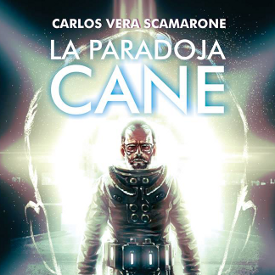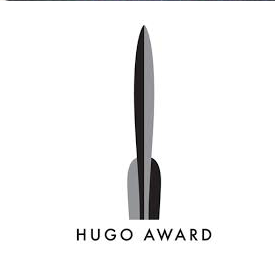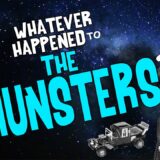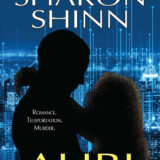Recent years have seen an explosion of new talent in genre fiction, new voices such as Mark Lawrence, N.K. Jemisin, Saladin Ahmed, Douglas Hulick, and Felix Gilman have had their debut novels produced by publishers such as Ace, Orbit, DAW, Roc, and Tor. But try as they may, these publishers have limited resources and only a small number of titles are selected for each editorial calendar. As such, many great books are turned away, not because they aren’t worthy of an audience, but because there just isn’t enough bandwidth.
Then a funny thing happened, in late 2010 the ebook revolution, which had been promised for years, finally came into its own, and as a result, the once-closed gates have been bashed and broken. The biggest benefactors of this disruptive technology have been self-published authors. Those that have decided to go it on their own either because they were rejected by the mainstream presses, or their entrepreneurial spirit couldn’t stand being confined.
Genre fiction such as romance, science fiction, fantasy, horror, and mysteries had a distinct advantage in this brave new world. Audiences who craved these types of popular fiction were easy to find, and hence the savvy indie authors were able to get the word out about their books. Sites like goodreads, Library Thing and Shelfari allow readers of similar tastes to form groups and communities where new books and new authors are discovered and shared.
I’ve heard some in the publishing industry dismiss the rising influence of e-book indie authors with statements such as, “Self-publishing has always been around, nothing has changed.” But they are missing an important component…distribution, and this makes all the difference in the world. For the first time there is a viable platform that allows a self-published author to have their titles purchased by the masses. The barriers to entry, which are so high in a print dominated world, no longer exist and sites like Amazon offer authors a level playing field.
In traditional brick-and-mortar stores, it takes deep pockets to get a book in front of a reader. Co-op dollars (money paid by publishers for special treatment, such as being placed in the front of the store) keep readers focused on the blockbuster releases. The high costs of large print runs, warehousing, and a sales force to market to corporate buyers, made it impossible for self-published books to get into stores. These authors were forced to sell books off their own websites or out of the trunks of their cars. Such a low volume distribution system, made it impossible for a self-published book to find any traction.
But an ebook’s only distribution cost is incurred during a sale. When priced between $2.99 and $9.99 the author/publisher keeps 70% of the income and the retailers (Amazon, Barnes & Noble, Apple, Google) keep 30%. What’s more, sites like Amazon don’t rely heavily on co-op fees. Instead, it’s the sales volume that determines how much exposure a title receives. Their artificial intelligence will dynamically build pages based on past buying or browsing habits. When shopping, the reader is exposed to other books through “also bought,” “bundle and save” and “recommended for you” prompts. Just like the book social network sites, which collect readers of like tastes into groups, so, too, does Amazon create pockets of of genre fiction can be exposed to new authors, even those not released by a big-six publishing giant.
If you look at Amazon’s Kindle Best Sellers in Epic Fantasy list you’ll find it is split 50/50 between traditional and self-published authors. Names like Michael G. Manning, David Dalglish, David A. Wells, Toby Neighbors, M.R. Mathias, and Lindsay Buroker are selling just as many books as Patrick Rothfuss, Brandon Sanderson, Jim Butcher, and R.A. Salvatore. What’s more, their making more money doing so. A traditionally published author whose book is sold for $7.99 will earn $1.40 ($1.19 after paying their agent’s fee). A self-published author selling their book for $3.99 earns $2.80 twice as much!
The lines between self-published and traditional published are blurring and a new type of author—the hybrid—is emerging. These are those who publish works both traditionally and through self-publishing. I myself was signed by Orbit for my Riyria Revelations series which was previously self-published. Anthony Ryan’s Blood Song has been purchased by Ace/Penguin. Science fiction author Hugh Howey has kept his US ebook rights but has a deal with Simon & Schuster to sell print copies in the US and with Random House for distribution in the UK of his bestselling book Wool.
Then there are the traditionally published authors who are want to keep a higher percentage of their profits. Terry Goodkind self-published The First Confessor. Brandon Sanderson released the ebooks for two novellas himself: Legion in September 2012 and The Emperor’s Soul in November. Cory Doctorow has self-published a number of works and uses crowd-funding through Kickstarter to raise the capital for cover design and editing.
What does this all mean for genre readers? It means you’ll have more choices and selections than ever before. Books that don’t fit into traditional molds (always difficult for big presses to risk taking a chance on) can find an audience through self-publishing. More titles can be released by prolific authors who can quickly put out a self-published work in a fraction of the time it takes for traditional publishers which need to fit each book in a publication calendar that is determined as much as a year in advance. It means authors are earning more money, allowing them quit their day jobs and providing them with more time to produce more stories. It means that there is a brave new world and both readers and writers will be the winners.











We are already at the time when authors are expected to be their own marketers – even those from big-six publishers with six-figure deals need to promote their work independent from their publishers house. For those rare few who get seven-figures then they don't have to worry about this as much but that is a rarity.
As for being your own agent…I think if you are dealing with a big-six publisher having an agent is well worth it. The types of contracts that are given to someone without representation are much different than those when an agent is attached. In general the 15% that goes to the agent is well worth it.
As for being their own publisher – that is a personal choice. There are many people who have taken this route and have been successful – but you have to go "all in" and be prepared to do all the things a normal publisher would do: editing, cover design, marketing copy that is engaging, etc.
For authors that take responsibility for the whole nine yards (and who write well) the results are very good (and outperform that of traditional publishers) for those that just throw something up with no attention to those things – they'll fail.
"Getting lost in the ocean" happens for two reasons a) you write a bad book that does not get word of mouth sales or b) you never get it in front of a core group who could have spread the word because they found the book of high quality. The overcoming anonymity is the same now as it has always been. Cream does rise to the top….as long as a) the book is good and b) you get it out there to some people who will spread the word.
You hit on some interesting and key points about Ebooks.
I wonder what you think about market changes. How far off is the time when an author will be expected to be their own agent, own publisher, and own marketer? Are publishers actively blocking/resisting such trends?
Would this trend be good or bad for the author? To be completely freelance and lost in the publishing ocean with a host of other authors? Or do you think an author can overcome their anonymity when there's a million independents in the market?
Genre readers still have one big hurdle though, finding the books they want. Amazon is clogged with over a million ebooks and they are clearly promoting established authors and publishers offerings over that of new folks. Their genre classifications don't work so good either. Try searching for pulp or horror and you'll see what I mean.
Yes we indies can put our stuff out there, but it's mostly into one big eslush file.
I hear the "cloggged with millions of choices" often, but the reality is those books fade into obscurity and have no effect on the good books there. In general Amazon is using the "community" to promote books based on sales. So a book that sells more is found on various Bestseller lists, recommendations, and "Also bought" bars. I do agree with you though that they need to pay better attention to their categories. Funny thing is recently I wanted to see a list of Cozy Mysteries and found there was no such classification under the books section (there was one for the kindle). But they did have a category for "Slueth Cats" – I'm not kidding they think there are enough books about cats who are detectives that it has its own classification.
It really doesn't matter if you're self-publishing or with a big publisher. It's a very crowded market, regardless of your pubication vehicle.
Even big publishers typically have two or three "A" books that they'll publicize and which the sales team will work to have prominently placed (for hard copy). In most cases, these are the books for which the publisher paid a large advance, thereby forcing their hand in order to make back the sunk cost. The rest of the publisher's list is relegated to the "C" list (there used to be a "B" list, but that's long gone), which means that the author is expected to provide publicity and promotion.
However, my most recent experience with a large publisher (Prentice Hall) revealed that they were surprising inept when it comes to ebook. They were (as of a few months ago) unable to figure out how to distribute ebook copies for reviewers, insisting instead upon hard copy distribution.
My overall impression of the mainstream publishing world is that they're in denial about ebooks, partly because they measure the industry based upon revenue rather than unit count, and only count books from the largest 20 or so publishers.
I agree…I'm fortunate in that my publisher does do marketing for my books but I don't "count" on that to get my name out there. Any author not on the "A" list needs to step up to the plate and take responsibility for building their audience or face the fact that they will fade into oblivion.